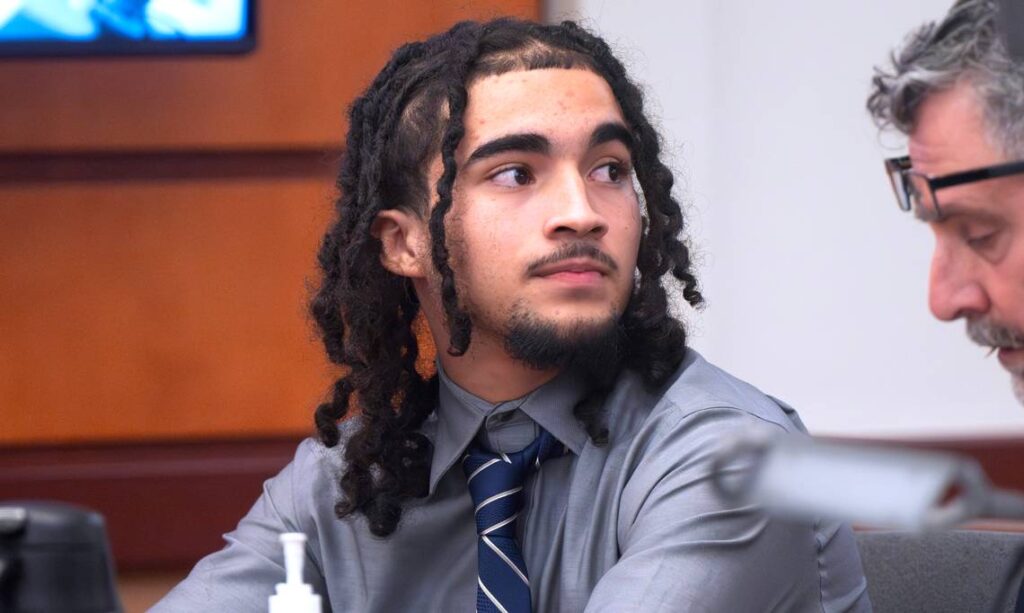In a devastating incident that has continued to reverberate throughout the Lakewood community, 18-year-old David Raul Maldonado was sentenced to over three-and-a-half years in state custody for fatally shooting 16-year-old Desmin Jarrett while they were handling guns in a home near American Lake. The tragic event, which occurred on June 22, 2023, has been characterized as an act of recklessness, leading to serious legal repercussions for Maldonado, who pled guilty in November to charges of first-degree manslaughter and second-degree unlawful possession of a firearm. Pierce County Superior Court Judge Susan Adams handed down a sentence that fell below the standard range for similar offenses, a decision backed by both the prosecution and defense, emphasizing the need to consider the nuances of youthful behavior in the judicial process.
Judge Adams, in delivering the sentence, highlighted multiple elements that influenced her decision, including the immaturity, impulsive behavior, and overall environment that contributed to the tragedy. She noted the importance of acknowledging the defendant’s youth, inexperience, and family circumstances, reflecting a judicial understanding that adolescents often face challenges that may blur their judgment. “You were a young man making foolish, impulsive decisions,” she stated, reflecting upon how the presence of firearms exacerbated the situation, leading to an irreparable loss. Maldonado’s sentence will be served under the custody of the Department of Children, Youth and Families, as Washington state mandates juvenile offenders receive rehabilitation until they turn 25, after which they may transition to adult correctional facilities.
Maldonado’s attorney, Bryan Hershman, presented a portrait of his client as a promising young individual—a dedicated student and athlete—who had experienced significant personal hardships, such as his mother’s incarceration during his childhood. The defense argued that these struggles shaped Maldonado’s character and resilience, and he expressed a commitment to demonstrating his potential for rehabilitation. According to Hershman, Maldonado had only recently formed a friendship with Jarrett prior to the incident, and their interactions had primarily involved smoking cannabis and handling the firearms present in Jarrett’s home, leading to the tragic outcome.
The details surrounding the shooting were chilling. It was reported that on the day of the incident, Maldonado was fooling around with a handgun when it discharged, fatally injuring Jarrett. Witness accounts, including that of Jarrett’s mother who was nearby, indicated that there was a clear atmosphere of recklessness at the time. After the shot was fired, Jarrett was rushed to Madigan Army Medical Hospital but succumbed to his injuries that evening. Maldonado initially fled the scene, driven by fear and panic, but later turned himself in to authorities, recognizing the gravity of the situation.
Investigations by the Lakewood Police Department suggested that the shooting was intentional rather than accidental, leading to Maldonado initially facing charges of first-degree murder. However, in light of the circumstances, those charges were amended to manslaughter as Maldonado plead guilty. Prosecutor Maureen Goodman pointed out that this adjustment accurately reflected Maldonado’s conduct during the incident, indicating a level of recklessness rather than a deliberate intention to kill. Casey’s family, deeply affected by the loss, chose not to attend the sentencing hearing, though they had reportedly communicated compassionately with Maldonado, demonstrating an extraordinary level of understanding and grace under such tragic circumstances.
Throughout the legal proceedings and the sentencing, Maldonado displayed a demeanor of quiet reflection, surrounded by a network of supportive friends who attended to stand by him. Expressing his remorse during the hearing, he spoke candidly about the weight of regret he carries, as well as his commitment to bettering himself moving forward. “I know I’m going to do better,” he affirmed, indicating his resolve to confront the consequences of his actions and strive for personal growth in the face of intense grief and loss experienced by those affected by the tragedy.
This case has underscored the complex interplay between youth, recklessness, and the legal system, prompting broader discussions about gun safety and the responsibilities associated with firearm ownership. As communities grapple with the implications of such incidents, the focus often shifts toward prevention and the cultivation of safe environments for young people, emphasizing the need for education surrounding the handling of firearms. Moving forward, both Maldonado’s journey and the community’s healing process serve as poignant reminders of the necessity for empathy, understanding, and the transformative potential of rehabilitation in the wake of tragedy.

